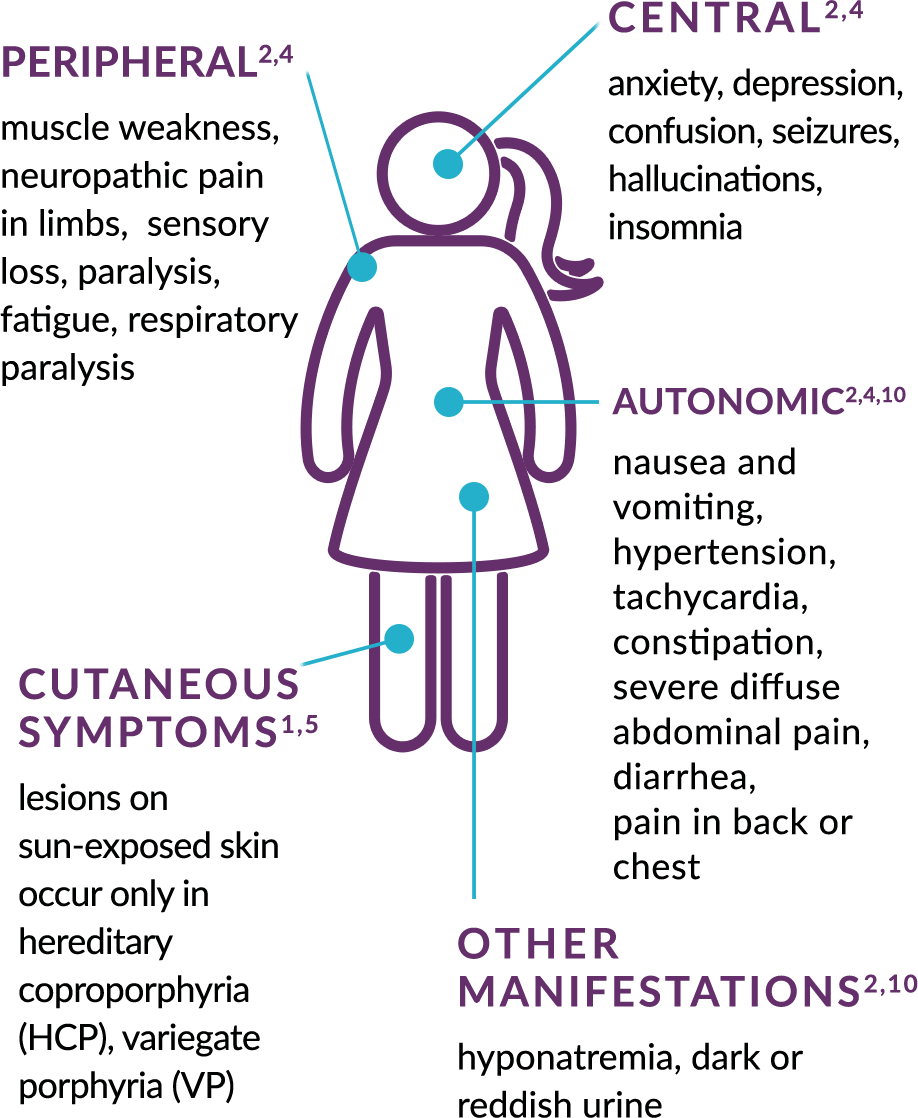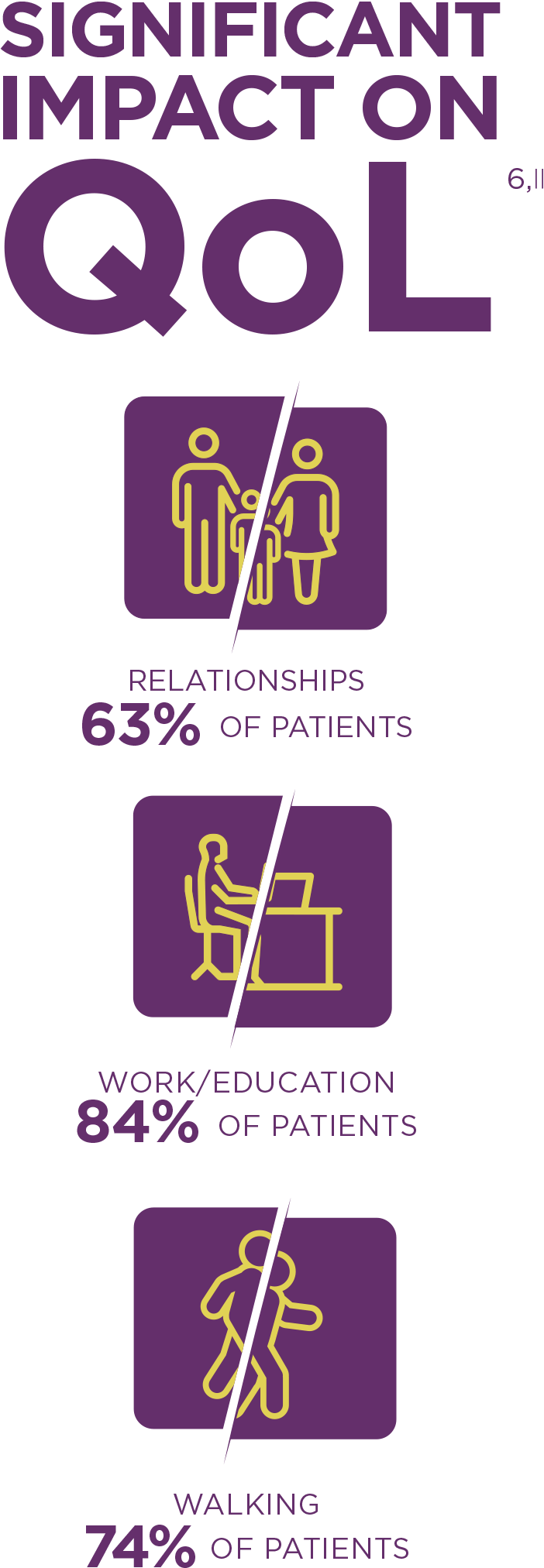LEARN TO SPOT THE
SIGNS & SYMPTOMS OF AHP†
SEVERE, DIFFUSE
ABDOMINAL PAIN1-5
+
1 OR MORE OF THE FOLLOWING
PERIPHERAL Nervous System
- Limb weakness or pain
CENTRAL Nervous System
- Anxiety
- Depression
- Insomnia
- Confusion
AUTONOMIC Nervous System
- Nausea
- Vomiting
CUTANEOUS (only in HCP and VP.5)
- Skin lesions on sun- exposed areas
25-35% of patients with AHP report hyponatraemia9
†There are 4 types of AHP. Over 80% of cases are acute intermittent porphyria (AIP), followed by variegate porphyria (VP), hereditary coproporphyria (HCP), and the extremely rare ALA dehydratase-deficiency porphyria (ADP).1,6,7
AHP FEATURES A
COMBINATION OF SYMPTOMS
In addition to severe, diffuse abdominal pain without fever or leukocytosis, other common symptoms of AHP include nausea and vomiting, limb weakness or pain, anxiety, confusion, and skin lesions on sun-exposed areas (HCP and VP only). Tachycardia and hyponatremia are often present in acute attacks of AHP.1,2,7
These symptoms reflect toxic effects across the autonomic, peripheral, and central nervous systems. Patients may experience one characteristic symptom or multiple symptoms that may lead to a diagnosis1,2:

-
CENTRAL2,4
anxiety, depression, confusion, seizures, hallucinations, insomnia
-
PERIPHERAL2,4
muscle weakness, neuropathic pain in limbs, sensory loss, paralysis, fatigue, respiratory paralysis
-
AUTONOMIC2,4,10
nausea and vomiting, hypertension, tachycardia, constipation, severe diffuse abdominal pain, diarrhea, pain in back or chest
-
CUTANEOUS SYMPTOMS1,5
lesions on sun-exposed skin occur only in hereditary coproporphyria (HCP), variegate porphyria (VP)
-
OTHER MANIFESTATIONS2,10
hyponatremia, dark or reddish urine
As healthcare providers working with porphyria patients, it’s critical that we remember many are suffering from mentally-impairing brain fog that could also be a warning sign of an attack, and makes the caregiver’s role so critical.
R. J. Desnick, Ph.D, M.DDean for Genetics and Genomic Medicine, Icahn School of Medicine at Mount Sinai
MANIFESTATIONS OF AHP
AHP can be characterized by potentially life-threatening attacks and, for some patients, chronic debilitating symptoms that negatively impact daily functioning and quality of life. Acute attacks in genetically predisposed patients are frequently preceded by environmental or hormonal triggers.1,6,8
In a large natural history study of patients with recurrent attacks,‡ 65% of patients reported chronic symptoms (including pain), and 46% reported experiencing symptoms every day.8
‡Recurrent attacks in EXPLORE were defined as ≥3 attacks within 12 months or prophylactic use of hemin or GnRH analog.8
Some known triggers of acute attacks may include:1,5,10,11
The use of some medications in the following drug classes:
- Anesthetics
- Oral contraceptives
- Anticonvulsants
- Antihistamines
- Antihyperglycemics
- Antimicrobials
- Hormones
- Migraine drugs
- Sedatives
You may access the Drug Database for Porphyria to learn more about the potential of certain medications to trigger an attack:
Hormonal fluctuations during the menstrual cycle§
Extreme dieting
Excessive alcohol consumption
Smoking
Stress caused by:
- Infections
- Surgery
- Physical exhaustion
- Psychological stress
Fewer than 10% of patients experience attacks without any identifying triggers.2
§Hormones are at their highest fluctuation 2 weeks before a woman's menstrual cycle begins.
AHP CAN BE MISDIAGNOSED
AS MORE COMMON DISEASES
The signs and symptoms of AHP can mimic those of numerous common diseases, such as irritable bowel syndrome, Crohn's disease, endometriosis, fibromyalgia, and psychiatric disorders. These similarities can lead to misdiagnoses.9,12,13
In a retrospective review of 546 AHP patients’ charts submitted by 175 healthcare providers from the US, EU, Canada, and Japan, 26% of patients with AHP were initially misdiagnosed.12
BE AWARE OF SIMILAR SYMPTOMS9,12,13
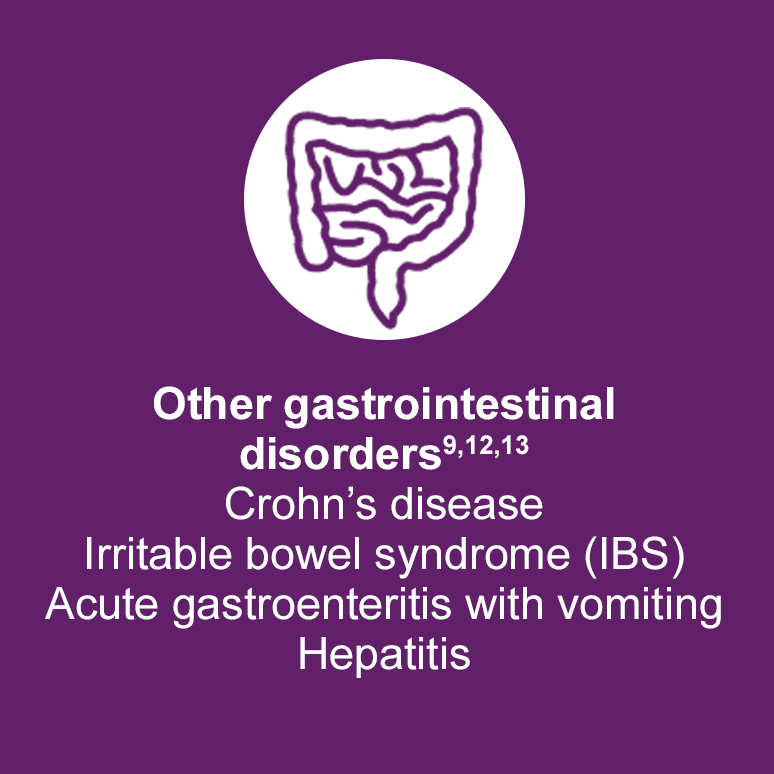
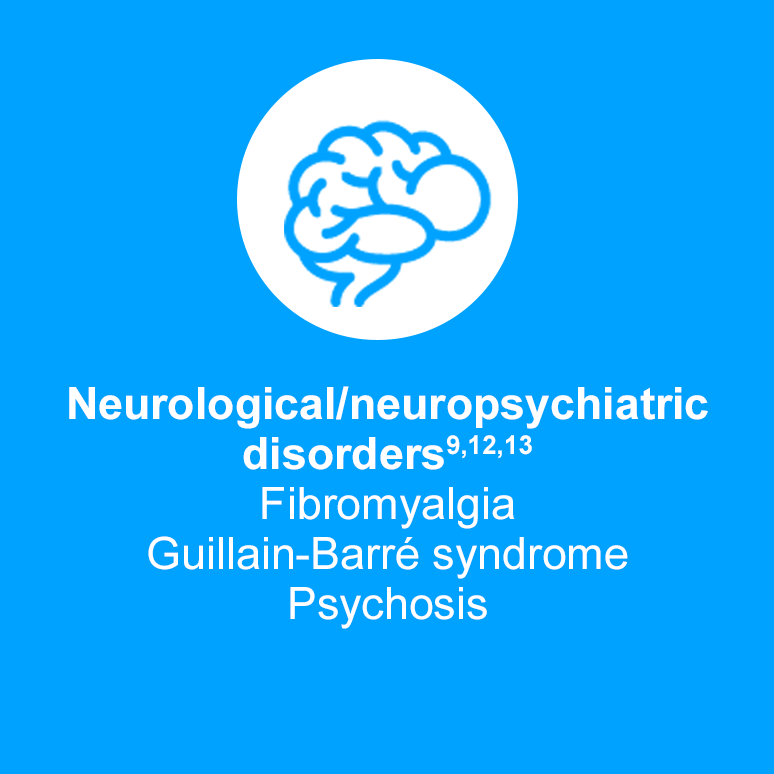
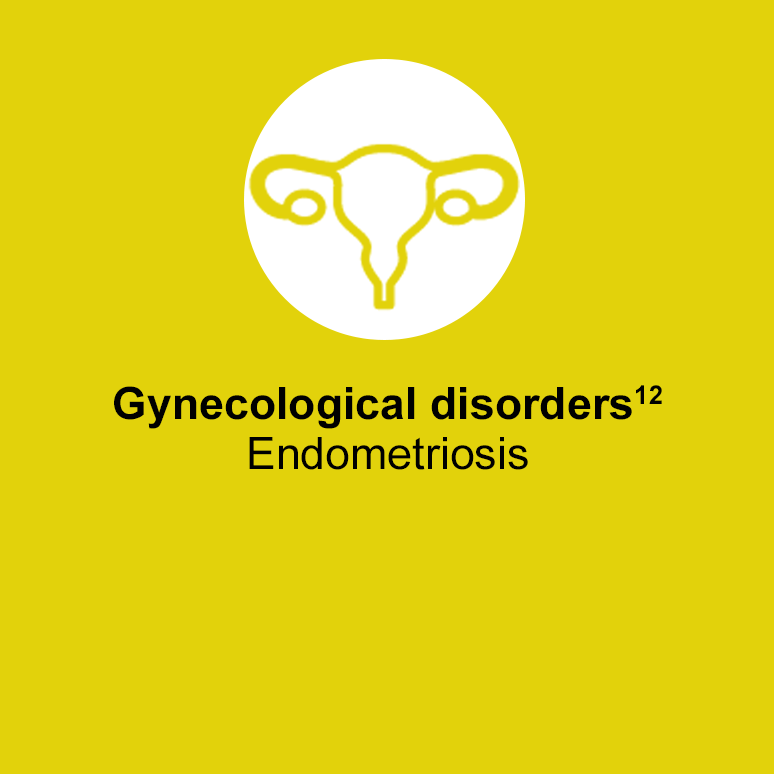
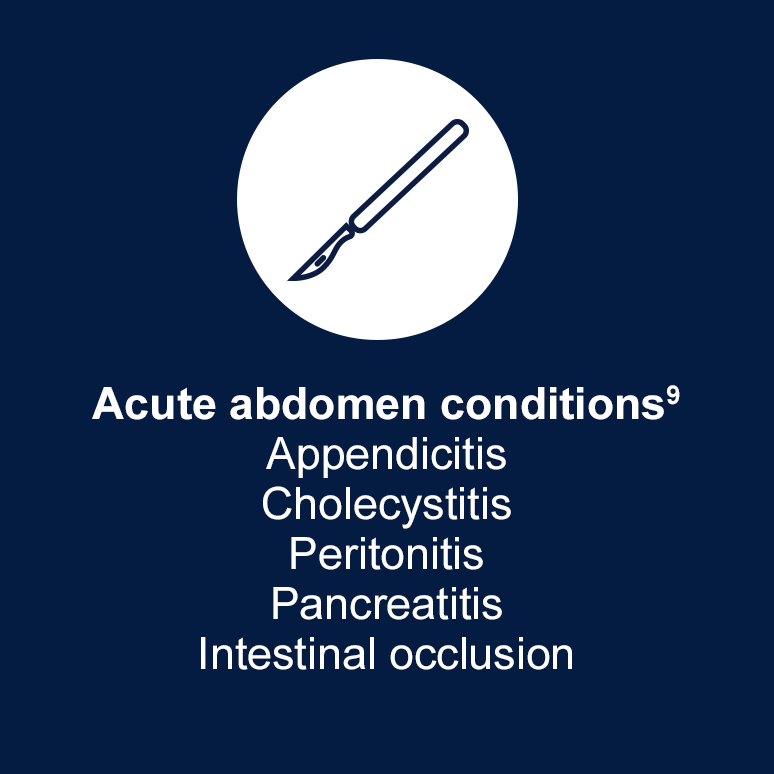
DELAYED DIAGNOSES CAN IMPACT PATIENTS’ HEALTH AND LONG-TERM WELL-BEING1,10,14
Long-term complications of AHP may include chronic hypertension, chronic kidney disease, hepatocellular carcinoma, and psychological problems.
An important goal in the management of AHP is preventing irreversible long-term damage.
THE BURDEN OF DELAYED DIAGNOSIS1,7,15-17
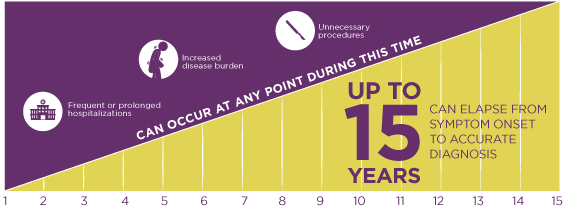
Delayed diagnosis and misdiagnoses can lead to unnecessary procedures. The symptoms of AHP often resemble those of other diseases in the gastrointestinal, gynecological, and neurological or neuropsychiatric areas. Severe symptoms can lead to hospitalizations and unnecessary procedures. Misdiagnosis is common, and people with AHP can wait years for an accurate and confirmed diagnosis. Patients with recurrent attacks of AHP had a mean 82 days (range: 10 to 374) of hospitalization over a mean observation time of 21 years.1,12,14,16,17
Acute hepatic porphyrias put deep strain on family relationships. Patients often miss family outings, can’t help with chores or contribute financially, and often feel like a burden to their loved ones, adding emotional pain to the physical.
Dr. Karl E. Anderson, M.D., FACP Professor, Departments of Preventive Medicine and Community Health, and Internal Medicine (Division of Gastroenterology)
AHP REDUCES QUALITY OF LIFE (QOL)
AHP is a debilitating disease with a significant impact on patients’ daily lives and social functioning, both during and in between attacks. In a study of AIP (the most common subtype of AHP) patients with recurrent acute attacks (n=19), 63% reported a negative impact on relationships or social roles, 74% reported interference with walking, and 84% reported impaired ability to work.6
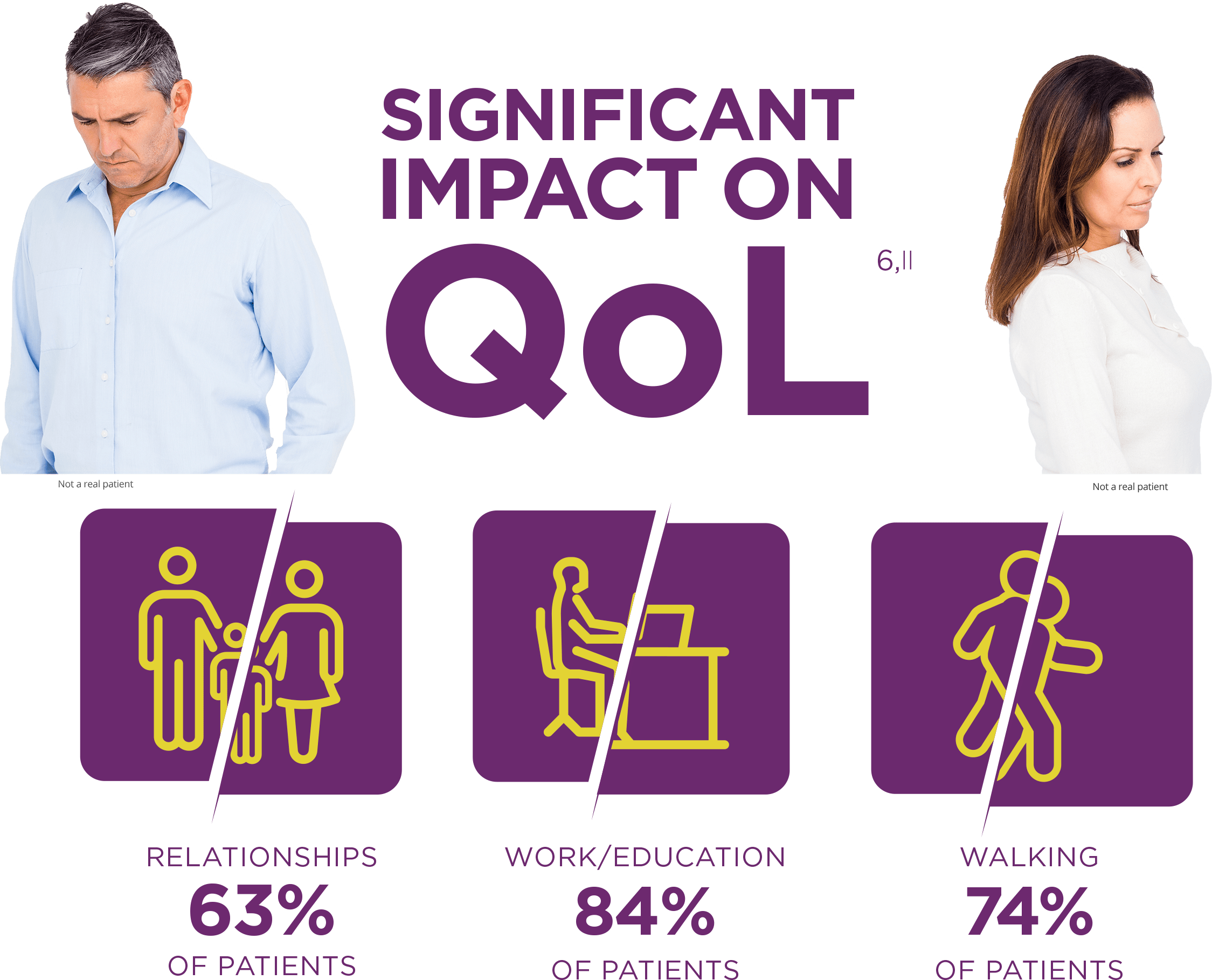
||As reported in a population with acute intermittent porphyria with multiple attacks (3 or more) within the last year.6
Long-term chronic pain, emotional stress, comorbid depression and anxiety, and fear of unpredictable attacks contribute to a lower QoL for some patients with AHP.6,18,19
SEE HOW PORPHYRIA IMPACTS THE LIVES OF REAL PATIENTS
Voices of AHP is a platform filled with real stories from real people and their experiences living with acute hepatic porphyria (AHP).
